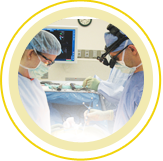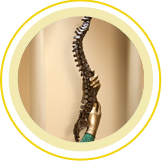While the condition sounds serious—and often causes pain, numbness, or weakness—surgery isn’t always the answer. Sometimes referred to as a bulging, slipped, ruptured, or protruding disc, every year more than three million Americans suffer with a herniated disc. But the question remains: does everyone with a herniated disc need surgery? Let’s explore the options.
What Is a Herniated Disc?
A herniated disc can occur in any part of your spine, but typically it affects the lower part of the spine, or the lumbar area. The other common area of concern is the neck, or cervical area. It rarely affects the middle of your back, known as the thoracic area. Due to wear and tear from movement, these discs that act as shock absorbers between your vertebrae can sometimes slip out of place. When this happens, it can press on nerves, causing discomfort or pain.
Signs of a Herniated Lumbar Disc
- Back pain

- Tingling and numbness in your legs and feet
- Muscle weakness
- Sharp pain shooting down one side of your buttocks into your leg (sciatic nerve pain)
Signs of a Herniated Neck Disc
- Pain near or between your shoulder blades
- Pain that travels from your neck down your arm and sometimes to your hands and fingers
- Pain that increases when turning your neck or bending
- Numbness or tingling in your arms
When to Seek Treatment
Sometimes the pain and discomfort from a herniated disc may go away on its own. If you have tried resting, taking pain meds at home, and have applied ice and heat without any pain relief, it may be time to seek treatment from Spine & Scoliosis Specialists in Greensboro or High Point, NC.
What Are Treatment Options for a Herniated Disc?
Less than 10% of patients need surgery for a herniated disc, so don’t think you need to jump into a surgical treatment. There are many less invasive options that will work just as well and sometimes better.
Non-Prescription Pain Medications
Spine & Scoliosis Specialists may suggest Tylenol, Ibuprofen, or Naproxen for mild to moderate pain.
Neuropathic Pain Medications
Drugs like Gabapentin, Lyrica, Cymbalta, and Venlafaxine are all drugs that affect nerve impulses to decrease pain.
Muscle Relaxers
These can help relieve pain.
Cortisone Injections
Spine & Scoliosis Specialists may suggest injections if pain medications are not working.
Other Types of Conservative Treatments
- Acupuncture
- Physical therapy
- Massage
- Heating pads and cold therapy
- Low-impact aerobic exercises
- Counter irritants like Icy Hot and Tiger Balm
- Adjusting sleep posture by placing pillows or a wedge under your knees
When Is Surgery Necessary?
Surgery is appropriate only when the conservative treatments have failed. It is often a last resort aimed at relieving severe symptoms and restoring quality of life when other options haven’t provided sufficient relief.
Contact Spine & Scoliosis Specialists
Contact Spine & Scoliosis Specialists at 336.333.6306 to schedule a consultation for diagnosis and treatment recommendations that are right for you.



